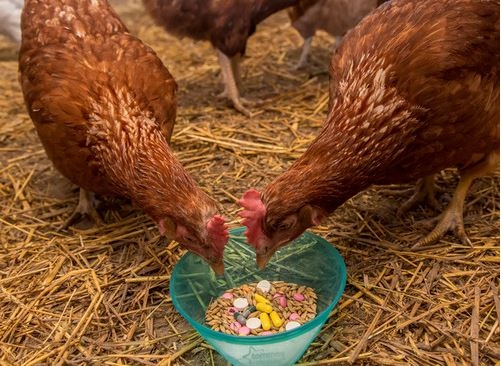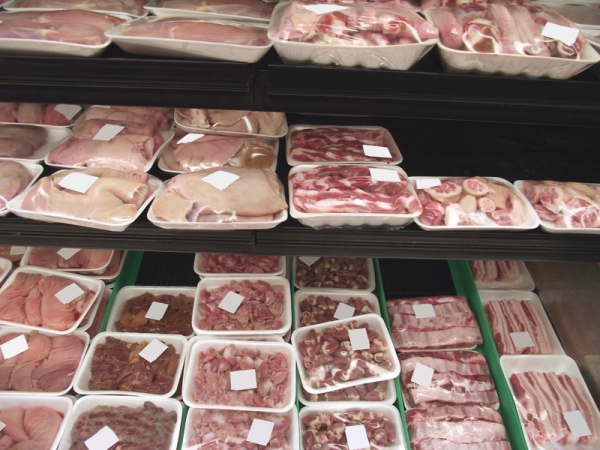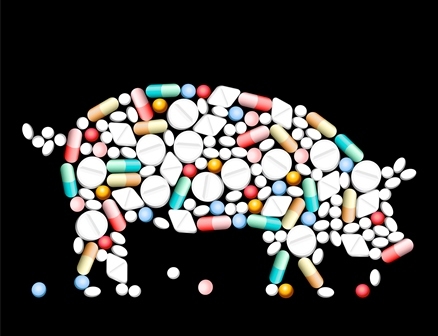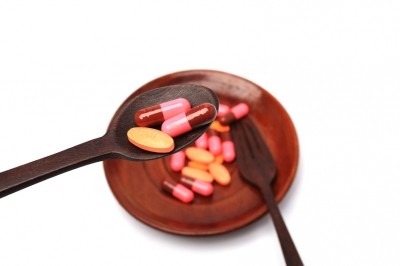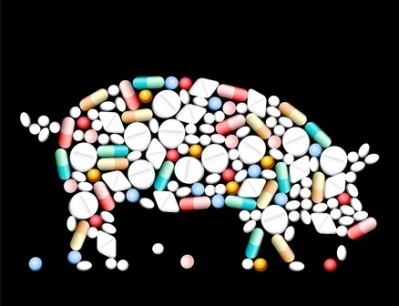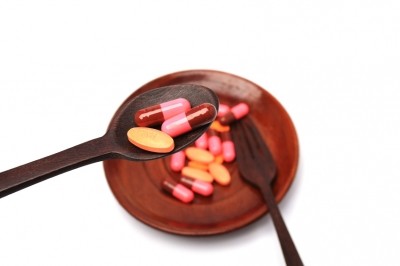Retailers must absorb costs of reducing antibiotic use in farming, says campaign group
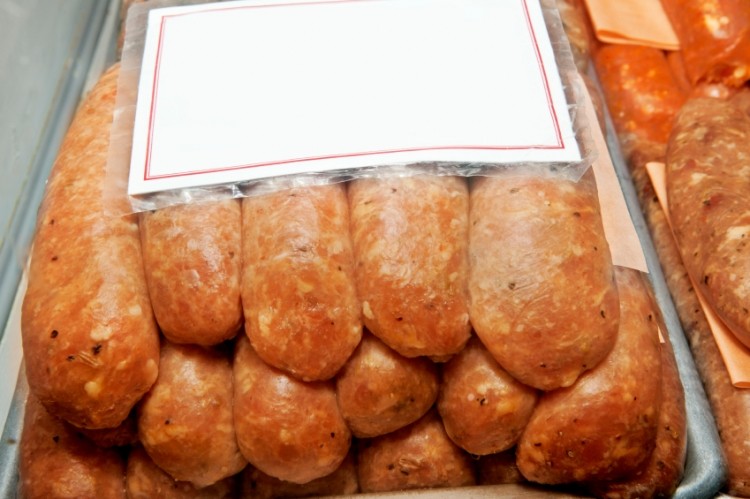
The survey, commissioned by the organisation Alliance to Save our Antibiotics, was carried out by scientists from the University of Cambridge led by Dr Mark Holmes, reader in Microbial Genomics & Veterinary Science.
The scientists looked at 189 samples of fresh pork and chicken, including whole meat cuts and lightly processed meat, such as minced pork and sausages, finding E.coli bacteria in 98% of the samples.
All products had been taken from the shelves of seven of the UK’s leading supermarkets: Asda, Aldi, Coop, Morrisons, Sainsbury’s, Tesco and Waitrose.
Nearly one quarter (24%) of samples tested positive for resistance to extended-spectrum beta-lactamase E. coli (ESBL E. coli) – a type of
E.coli that is resistant to third and fourth generation cephalosporins that are used to prevent blood poisoning caused by E.coli, a potentially life-threatening condition.
This marks a fourfold increase from sample tests carried out by the Alliance last year when 6% were positive for ESBL E. coli.
Nearly one fifth (19%) of pork and chicken samples tested positive for resistance to gentamicin while the highest level of resistance was for trimethoprim with 512% of pork samples and half of chicken testing positive.
The results of the survey can be downloaded in full here.
Focus on retailers for change
Campaigns, lobbying and communications specialist at the Alliance to Save our Antibiotics, Emma Rose, told FoodNavigator that while change needed to come from across the supply chain – including farmers and manufacturers – retailers had a particular responsibility to change their practices.
"UK supermarkets have, mostly, been very quiet on this issue – unwilling to stick their heads above the parapet for fear of unwelcome scrutiny on some pretty shaky policies (for the most part). It is imperative that supermarkets shoulder some of the responsibility for tackling this crisis – and for framing the narrative around responsible use.
"Greater pressure needs to be brought to bear on retailers to use their vast buying exert upward, positive pressure on the supply chain, and to support farmers to reduce antibiotic use – whilst agreeing to potentially absorb some of the operational challenges that this presents.
"They also have huge marketing power and the ability to heavily influence the narrative of veterinary antibiotic-use in the minds of consumers – and therefore to influence purchasing habits.”
The current level of antibiotics permitted by retailers in their own supply chains is unacceptable, Rose added.
“A shift by retailers (in partnership with their suppliers) could have hugely positive impacts in terms of supporting livestock systems where animals are kept healthy through good husbandry and welfare, not through routine medication.
“This may also mean that food retailers will have to pay a reasonable price for animal products. The often low prices paid to by farmers from supermarkets leads to continuous efforts increase productivity – meaning that animals are pushed to their natural limits and are more prone to disease.”
Hoewver the Alliance did applaud one supermarket, Waitrose, for its recently updated policy on antibiotics. The supermarket is now working towards year-on-year reductions in overall antibiotic use and has also pledged to stop using ‘Critically Important’ antibiotics (CIAs) as soon as possible.
The issue of over-use of antibiotics in the meat industry has increasingly been drawing consumer attention, and has been accompanied by a rise in antibiotic-free claims on meat products.
'Resistance is complex'
But the British Poultry Council, which represents the UK’s poultry industry, says antibiotic use in its sector has fallen by 44% since 2012.
“Resistance is complex and we have seen evidence of it persisting even after stopping the use of antibiotics,” it said in a statement released last week just ahead of the the Alliance's report.
“There is no sound-bite answer when it comes to antibiotics. Antibiotic resistance is an incredibly important subject for both animal and human health. The British poultry sector is determined to proceed along the route of responsible and reducing use. Using fewer antibiotics will put less pressure on bacteria in the poultry production chain to select for resistance, and we will see that resistance drop.”
According to a report published by the Centre for Disease Dynamics, Economics and Policy (CDDEP) released last year, The State of the World’s Antibiotics 2015, the amount of antibiotics used in agriculture in China is set to more than double reaching about 33,000 tons by 2030.
The US was predicted to increase use from about 8,000 tons in 2010 to 10,500 tons while Germany, which was estimated to use about 2,500 tons in 2010 is expected to have about the same level of use in 2030.
Slight increases were predicted for Spain and France which used around 2,000 and 1,700 tons in 2010 respectively.
